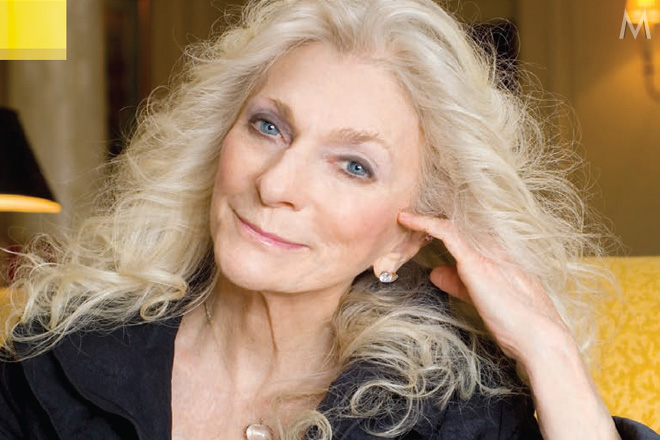 JUDY COLLINS
JUDY COLLINS
Looking back honestly on the bitter and sweet, in song and otherwise
Not many lives would include enough excitement for three memoirs, but Judy Collins’ is the exception. She has been a troubadour of the ’60s folk boom; accomplished composer; interpreter for the likes of Leonard Cohen, Bob Dylan and Joni Mitchell; founder of her own Wildflower Records label and relentless social advocate. She was famously the inspiration for the Crosby, Stills & Nash classic from which her latest autobiography derives its name: Sweet Judy Blue Eyes, which frankly addresses difficult subjects like her struggles with alcoholism and depression, as well as the suicide of her son Clark. We spoke to Collins, 72, about her life’s work and her latest album, Bohemian.
Was it tough writing the book?
As a writer, I believe that if you don’t write about it, it didn’t happen. I’ve already written about those issues. Keeping a journal has kept a lot of that drama under some kind of control. You’re not reliving these incidents, you’re telling about them—storytelling is very different from living them.
What inspired Bohemian?
It’s different for every song: I had never really recorded “Wings of Angels” properly, and I wanted to give it another try. My mother’s death last year inspired me to write “In the Twilight.” I found “Morocco” in one of my notebooks when I was looking for songs to finish. I wrote the first line of “Big Sur” in my journal when I was on the coast in 2001. With the songs that I write, I have to find the time to sit and finish them. For those I’m listening to, I keep a wish list of songs that are old and songs that are new. So it’s an intuitive process.
How do you choose covers?
I still have a long list of songs I’ve always wanted to sing, and I’m always narrowing it down to things that fit. Ultimately it comes down to what sticks with me. I might choose half a dozen songs to work on, and hopefully when I wake up in the middle of the night they’ll be the ones I can’t get out of my mind. I’ve been singing one song on the album, [Michael Veitch’s] “Veteran’s Day,” in my concerts since I heard it a few years ago, and it just wouldn’t leave my head. I just had to do it.
When you started songwriting in your late 20s, were you intimidated?
Not at all. I had never thought of doing it before, but it wasn’t intimidating because I wasn’t about to put anything on a record that I didn’t feel was up to the mark. Well, there was one song that wasn’t up to the mark, and it did make it—but it didn’t survive past that particular recording. (laughs) But no, you can’t feel competitive about that sort of thing.
Do you make an emotional tie to songs every time you sing?
No, you can’t do that. Mary Pickford once said she could do a grocery list while she was acting a part in a movie because she’s gone through it—she knows it, she’s been there, she’s emotionally taken that journey. You can’t play a drunk and actually be a drunk.
How do you reflect on your life?
Sometimes I get a little dazzled by it all. I think about my forebears and all the things they didn’t get to do. Maybe I was chosen to fulfill their ambitions. I feel like Shirley MacLaine, a bit. (laughs) Yes, it’s very exciting to have this kind of life and experience these things. I consider myself extremely fortunate. In the overall scheme, I could be doing a lot of things that wouldn’t make me happy.
–Lee Zimmerman



comment closed